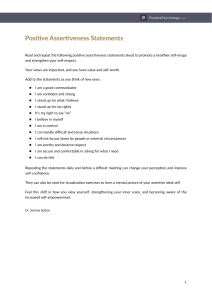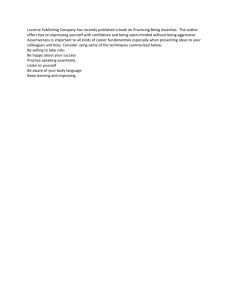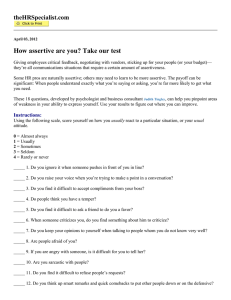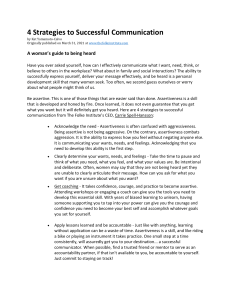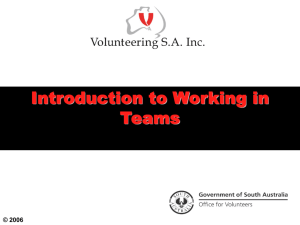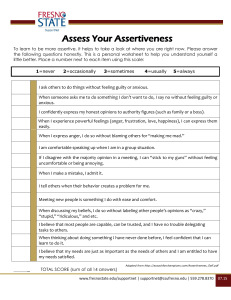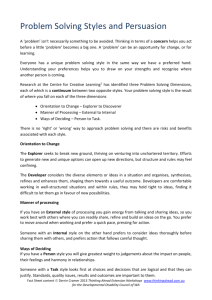WHAT WE WILL COVER FINDING YOUR OWN VOICE!
advertisement
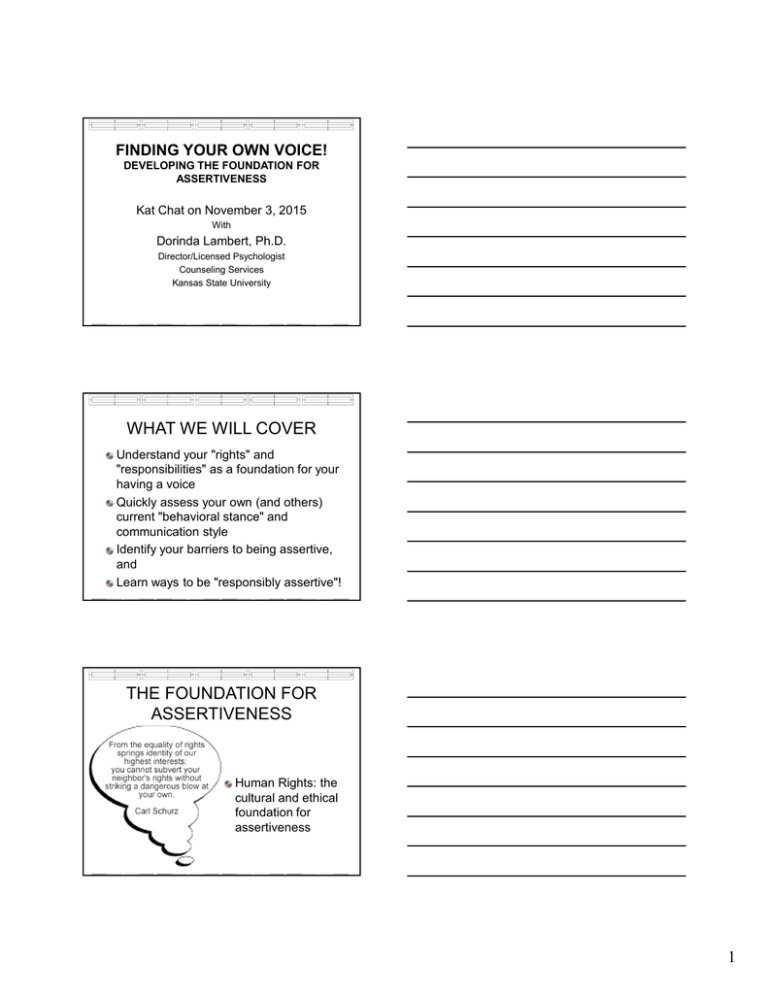
FINDING YOUR OWN VOICE! DEVELOPING THE FOUNDATION FOR ASSERTIVENESS Kat Chat on November 3, 2015 With Dorinda Lambert, Ph.D. Director/Licensed Psychologist Counseling Services Kansas State University WHAT WE WILL COVER Understand your "rights" and "responsibilities" as a foundation for your having a voice Quickly assess your own (and others) current "behavioral stance" and communication style Identify your barriers to being assertive, and Learn ways to be "responsibly assertive"! THE FOUNDATION FOR ASSERTIVENESS Human Rights: the cultural and ethical foundation for assertiveness 1 The Universal Declaration of Human Rights (1948) see handout and translations available at http://www.ohchr.org/EN/UDHR/Pages/Introduction.aspx how this document was written can be found at http://www.ohchr.org/EN/UDHR/Pages/UDHRIndex.aspx Practical Values/the “Golden Rule” THE FOUNDATION FOR ASSERTIVENESS Understand your "rights" and "responsibilities" as a foundation for your having a voice USE THE NEXT HANDOUT FOR THIS EXERCISE BASIC RIGHTS 2 BASIC RESPONSIBLITIES HOW DOES THIS HELP DISTINGUISH BETWEEN ASSERTIVENESS AND AGGRESSION? EXERCISE: assess your own (and others) current "behavioral stance" and communication style Behavioral Stances: Passive 3 Behavioral Stances: Passive-Aggressive Behavioral Stances: Aggressive Behavioral Stances: Assertive 4 Identify your barriers to being assertive PRACTICE STRENGTHENING YOUR AWARENESS OF YOUR RIGHTS AND YOUR RESPONSIBIITIES REMIND YOURSELF THAT OTHERS ALSO HAVE RIGHTS/RESPONSIBILITIES LEARN TO MANAGE YOUR OWN EMOTIONAL REACTIONS A–I–R Learn ways to be "responsibly assertive"! Improve your communication skills by Attend the next KatChat on nonviolent communication scheduled November 10, 2015 Practice the exercises from today!!! Develop and use good self-awareness/selfmanagement skills Take advantage of other trainings on campus for conflict resolution 5
